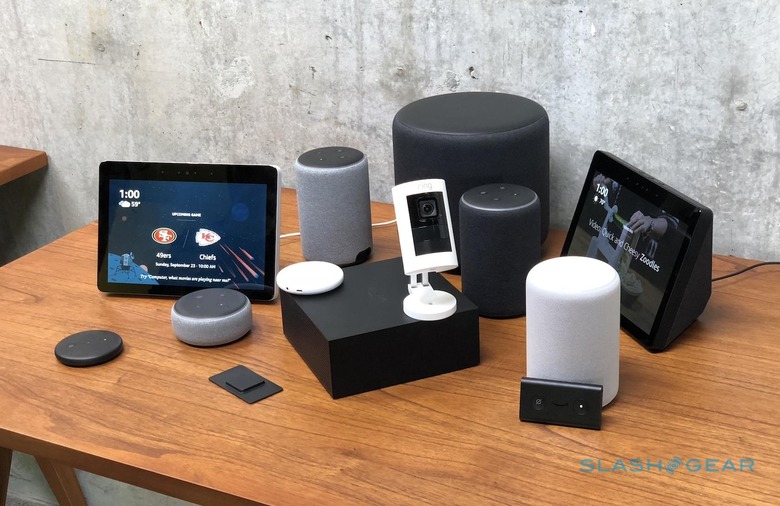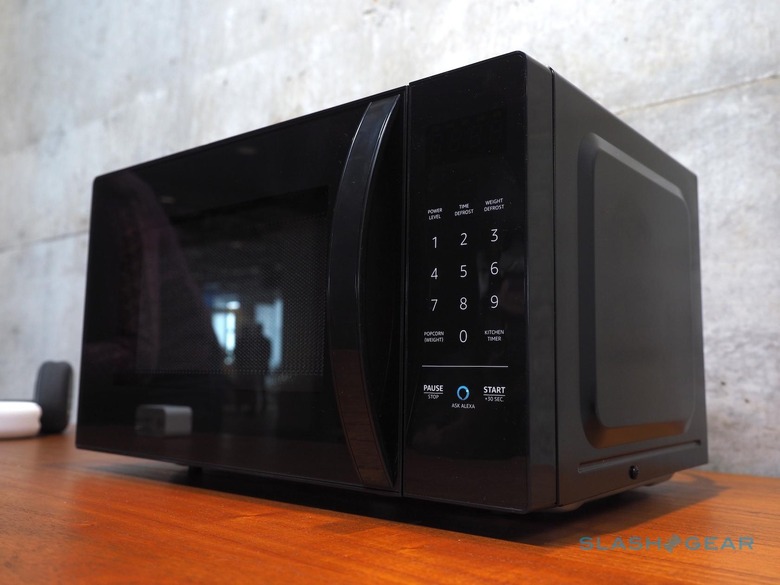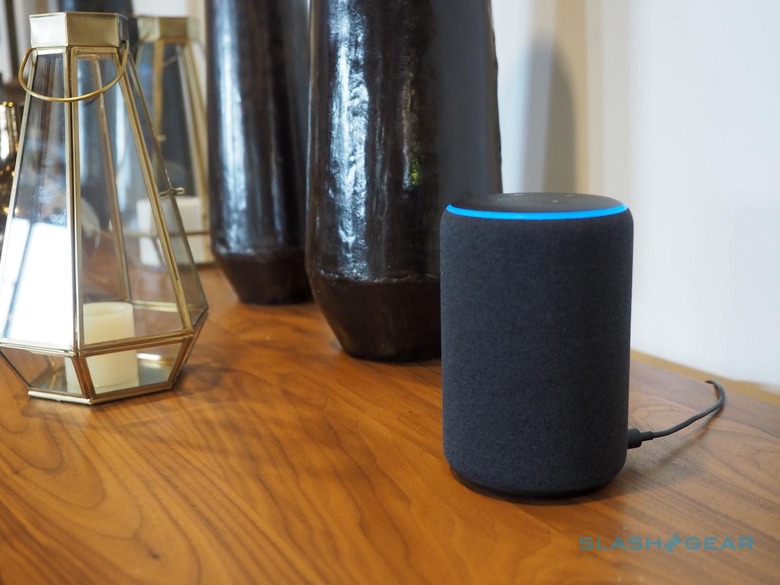Amazon Has Weaponized Choice
Too much choice is the Amazon way. While the retail behemoth is known for its 24/7 shopfront and speedy shipping, the core of its success has always been the ridiculous depth of its catalog. Want to choose between hundreds, maybe thousands of novelty BBQ aprons? You got it.
You won't be satisfied until you've sifted through every possible permutation of no-name security camera? Go at it, my friend, Amazon has you covered. Even the AmazonBasics range, its curated selection of just the "essentials," has swollen to the point where it could fill the shelves of a small store.
Now, it's Alexa's turn.
This week, Amazon took what was already a fairly comprehensive Alexa-powered range and hit the expand button. The new Echo Dot and Echo Plus are fairly obvious updates to existing products, but they brought with them a whole array of other hardware. Some sensible, some not so.

The differences, in some cases, are fairly granular. Do you go for an Echo Dot 3rd-gen, for instance, at $49.99, or save $15 and get an Echo Input? Then there are more meaningful questions, like do you really need the Alexa-connected Echo Wall Clock?
It's hard not to see this scattershot approach as being a direct attack on Google. The search giant has made headlines in recent months with Assistant-powered Smart Displays, not to mention some analysts suggesting the AI has now overtaken Alexa in terms of deployments. Google is expected to only crank up its efforts, with new hardware – including a Smart Display of its own – likely to debut alongside the Pixel 3 at its early October event.
Whatever Google brings there, though, it's unlikely to match the sheer breadth of products that Amazon announced yesterday. It's tough to imagine Google making a microwave of its own, or indeed a wall clock. The Assistant may be compatible with a whole array of smart plugs, but Google has never felt the need to put its own name on them.

That's because it has been following a similar strategy to the connected ecosystem as other big names, like Apple. Produce a core portfolio of devices, set out your vision (and, more mundane, the APIs and guidelines required for others to accede to that vision), then allow the third-party ecosystem to flourish around you.
Amazon does that too, of course, and indeed the company was bullish on the exponential growth of Alexa-compatible devices and services from third-party manufacturers and developers. However it's not afraid to get down into the trenches and do the extra work itself.
If you're a manufacturer of connected devices, that might be an ominous thought. Certainly, the Alexa Connect Kit that appliances like the AmazonBasics Microwave use is about as easy a way to integrate your product with Amazon's AI as you could hope for. Then again, if Amazon is making devices on its own, do you really have the stamina to compete head-to-head?

I'm always wary of ascribing human sentiment to business strategy, but there's certainly a sense that Google and Apple might see this piecemeal strategy as being beneath them. Amazon, in contrast, has no such hangups. It wants Alexa to be as widely adopted as possible, and if that involves trying to explain to skeptical media why ordering your AI to microwave a potato by voice is not only possible, but preferable, then so be it.
Sarcasm and cynicism roll off Amazon's determined hide like syrup off a Teflon bib. Somebody, among its thousands of engineers and developers, believes integrating Alexa into a battery-powered wall clock is A Good Idea, and so we get a battery-powered wall clock with Alexa support. That microwave might sound faintly ridiculous, but if it pushes the Alexa ecosystem – and gives the Amazon Dash replenishment service a shove, too – then it's worth doing nonetheless.

Certainly, Amazon is willing to allow other companies to fill the niches in its grand vision of Alexa everywhere. The AmazonBasics Microwave, for example, is less about making a smart appliance and more about pitching the ease and affordability of the Alexa Connect Kit. Where a HomeKit device-maker might feel they have some breathing space to take their time, though, without worrying that Apple itself will storm in and occupy their niche if they don't deliver quickly enough, I'm not sure Amazon inspires the same confidence.
Being everywhere has served Amazon well over the years in retail. For Alexa, the same strategy may achieve the same. The opposite of a "scorched earth" policy, more akin to a haze of dandelion seeds that take root wherever and whenever they land. Necessity may be the mother of invention, but ubiquity is the key to adoption.
